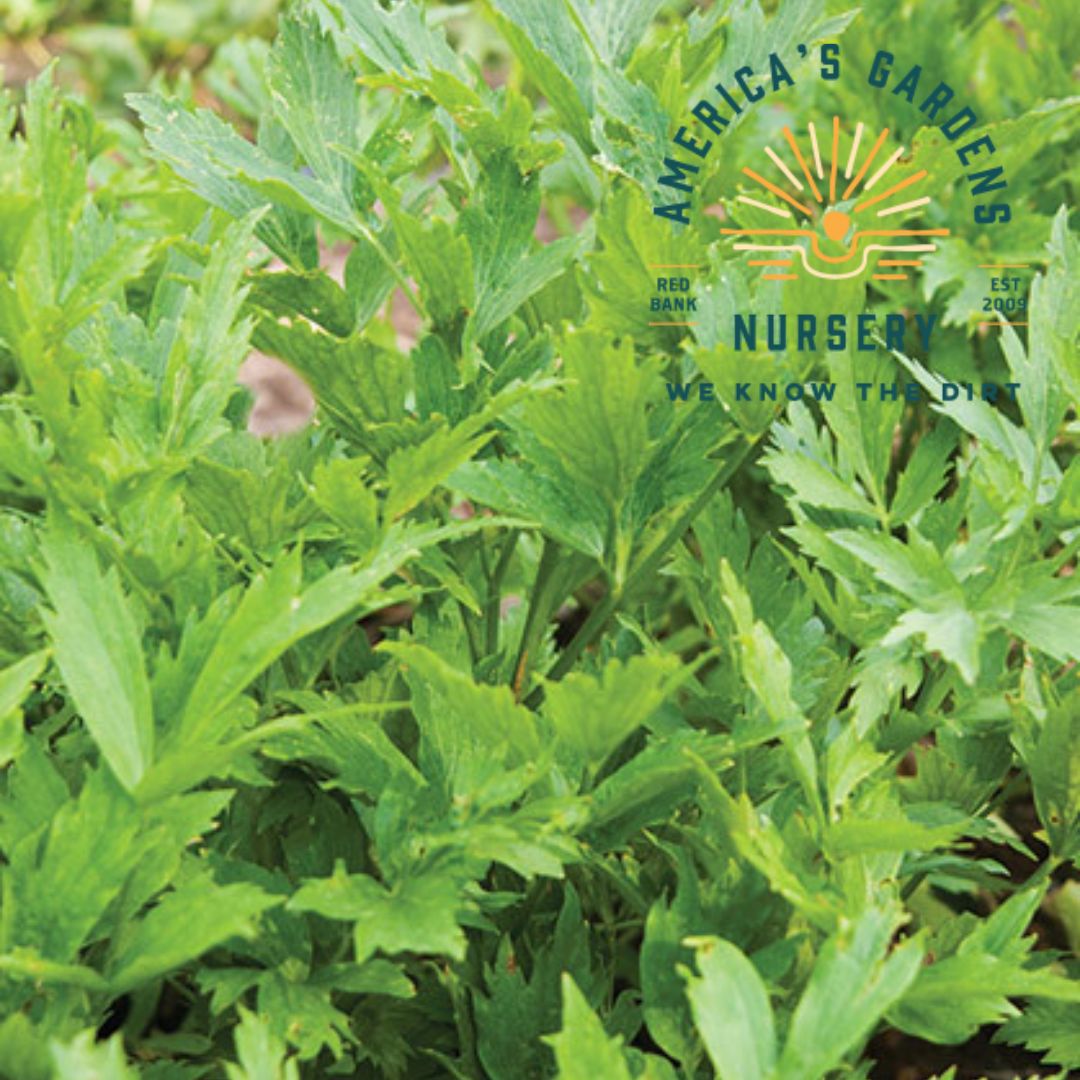





Lovage is an upright perennial herb in our zone (7) The taste and smell are reminiscent both of celery and parsley only more intense and spicy than either. The seeds can be used in the same way as celery seeds. Lovage compliments a large number of foods. The leaves can be used in salads, soups, and anything containing pork, poultry, and strongly flavored fish but be careful since it's quite powerful. The young leaves are the most widely used part which can be picked in spring and summer and have a mild, sweet celery flavor with a hint of aniseed. The young stalks can also be blanched like celery, cooked or candied like angelica, and the seeds can be used in baking. Even the roots are edible.
Like its near-relative celery, lovage likes plenty of moisture in the soil, but not waterlogged conditions. Plants may need additional watering in hot summer weather, especially if growing in full sun or free-draining soil. Lovage grows best in full sun, but will tolerate part shade. Best grown in zones 4-8.
Lovage is a perennial, so will live for several years and can grow quite large over time – up to 3 feet across, with flower stems up to 6 feet tall. Make sure you have enough space for it. Lovage can be planted in containers but grows best in the ground. Lovage is said to be the principal ingredient in many diuretic tea mixtures and is used to treat kidney stones, jaundice, malaria, sore throat, pleurisy, rheumatism, gout and boils.
While humans might enjoy Lovage without a second thought, dogs could experience mild upset stomachs if they consume too much. It's not that Lovage is inherently toxic to dogs; it's more about their smaller size and different metabolism.
Plant size and shape may differ from what is pictured.
For mail orders: Plants may go through shock during shipping. Upon arrival, take the plant out and water it thoroughly. If you are not satisfied with your purchase, please notify us via email at sales@amgardens.com and include a photo(s) within 24 hours of plant arrival.
For in store purchases: If you are not satisfied with your purchase, please call us at 423-870-5000 or return the plant in its original pot/condition within 3 days. Trees and shrubs have a 1 year warranty (exceptions may apply), but we highly encourage you to give us a call or email if you notice issues with your plant. We'd love to help you figure out what's wrong and save your plant!
Orders are shipped on Wednesdays and Thursdays; if your order is placed on a Wednesday, it may not ship until the following Wednesday. During peak season there may be delays in shipping. If it is too hot or cold, we suggest ordering during milder months to ensure plants arrive in best condition.